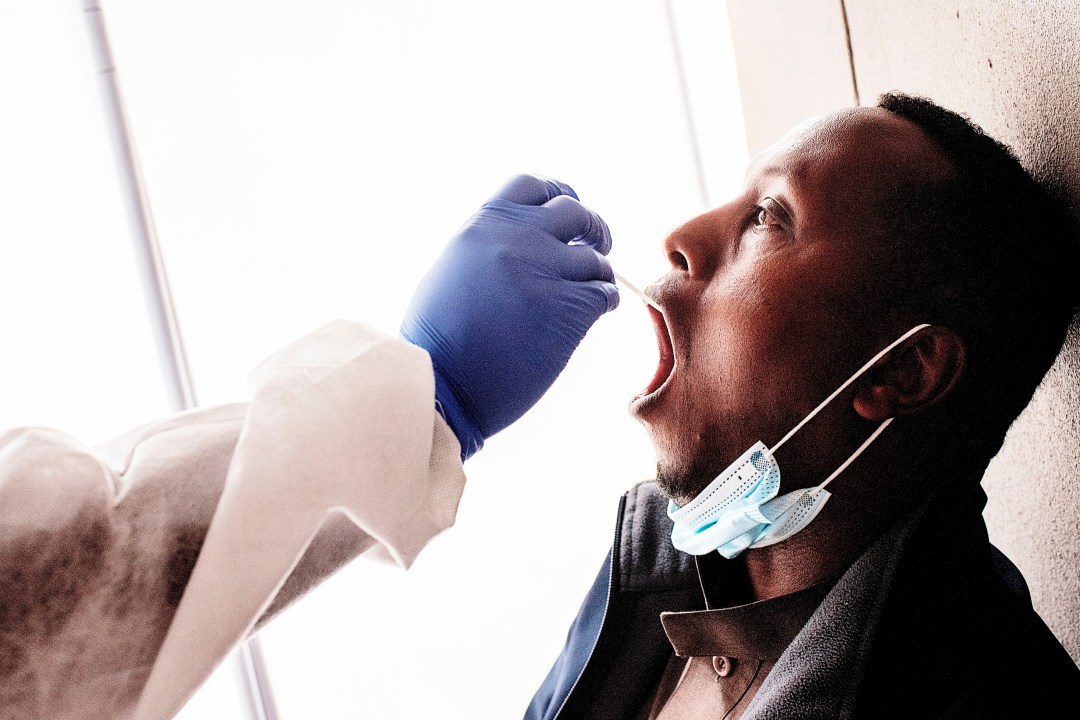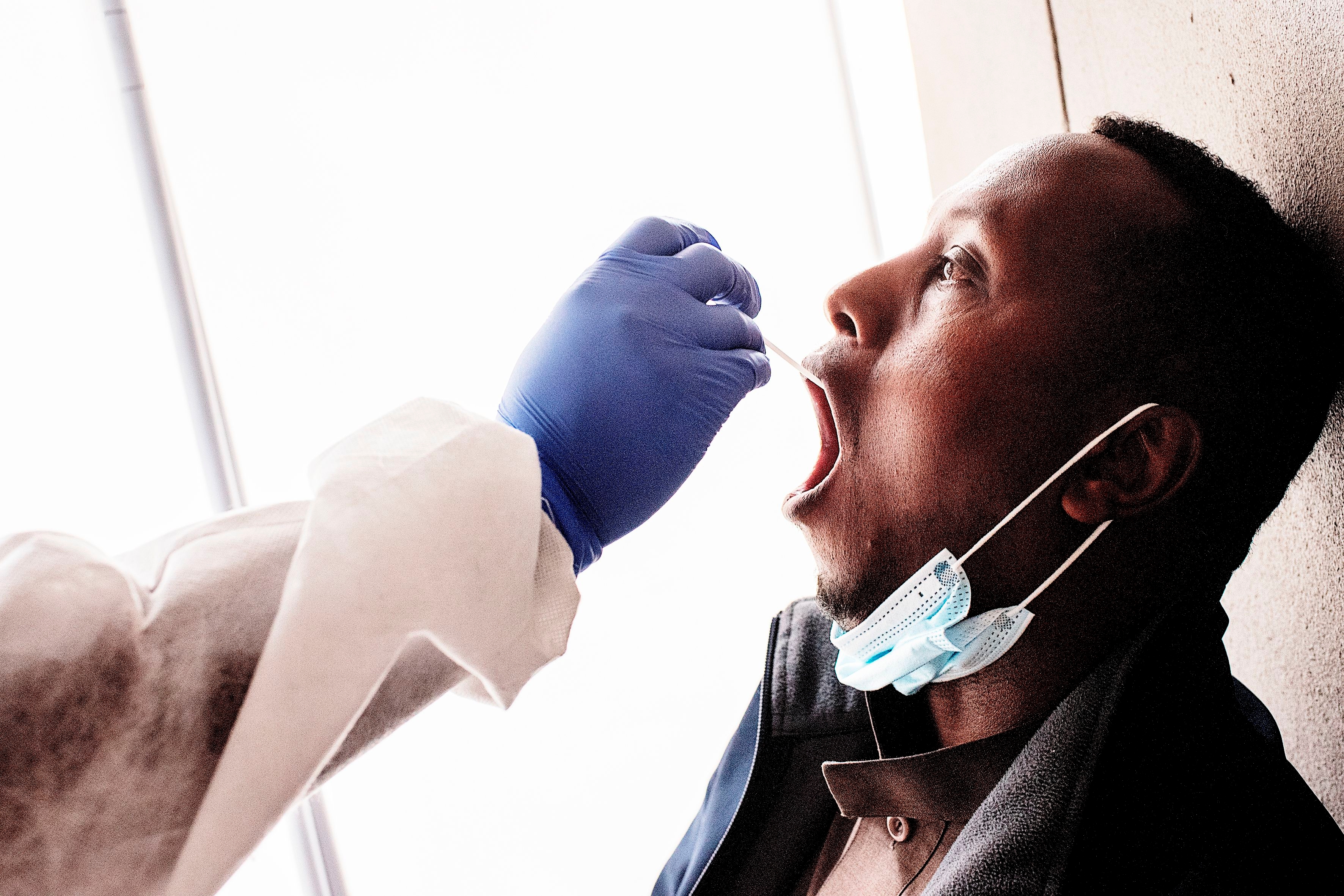Today begins the second phase of the Covid-19 vaccine programme, with the first members of the public receiving doses of the easier to use Oxford-AstraZeneca vaccine. But will the effort be thwarted by the emergence of two new variants of the SARS-CoV-2 virus, the Kentish strain and the South African strain? Yesterday, Sir John Bell, regius professor of medicine at the University of Oxford, gave his opinion. The Kentish strain, he said, does not greatly worry him. Although it has mutations that appear to make it more transmissible, they should not, he says, interfere with the working of any of the vaccines. More concerning, he believes, is the South African strain, which has ‘pretty substantial changes’ to the structure of the protein which enables the virus to attach itself to human cells — in particular to an area known as the receptor binding domain.
What we can’t do is to prevent the South African strain from reaching Britain
Bell likened the structure of the virus to a head and two shoulders. Where the Kent strain has a mutation on one shoulder, the South African one has mutations on both shoulders and the neck. As with the Kent strain, there is no data to suggest that the South African strain will cause more severe illness or will be more likely to affect younger people (although this has been claimed by some on the strength of anecdote from South Africa), but it could hamper the working of vaccines. On the other hand, he explained that the vaccines had proved to work much better than had been expected, preventing serious illness in almost all cases. ‘If they worked 20 per cent less well with the new strain they would still be pretty good vaccines.’
If the South African strain does not respond to existing vaccines, said Bell, it wouldn’t take a year to develop a new vaccine that would. It would take around a month to six weeks to reprogramme existing vaccines to respond to the new strain. It would then require little in the way of safety data because only small changes would need to be made which shouldn’t interfere with the safe working of the vaccine.
What we can’t do, thinks Bell, is to prevent the South African strain from reaching Britain. On the contrary, he thinks it is already here, although circulating in small quantities.








Comments